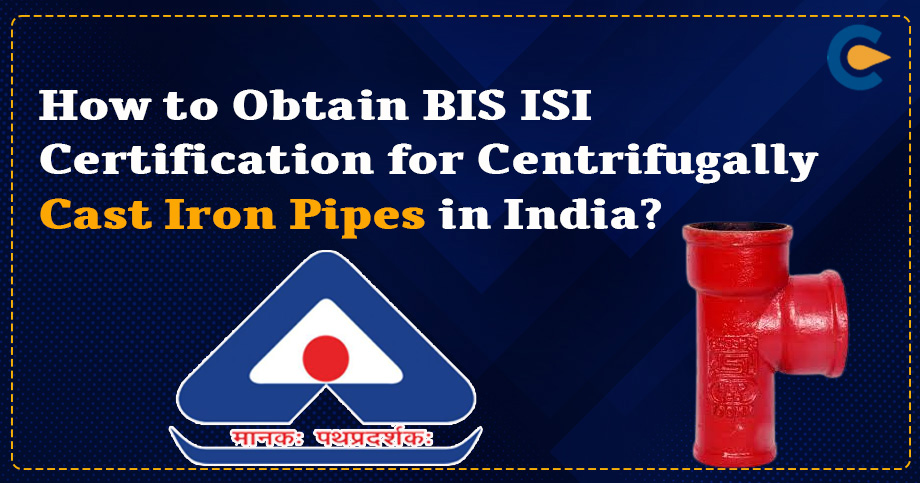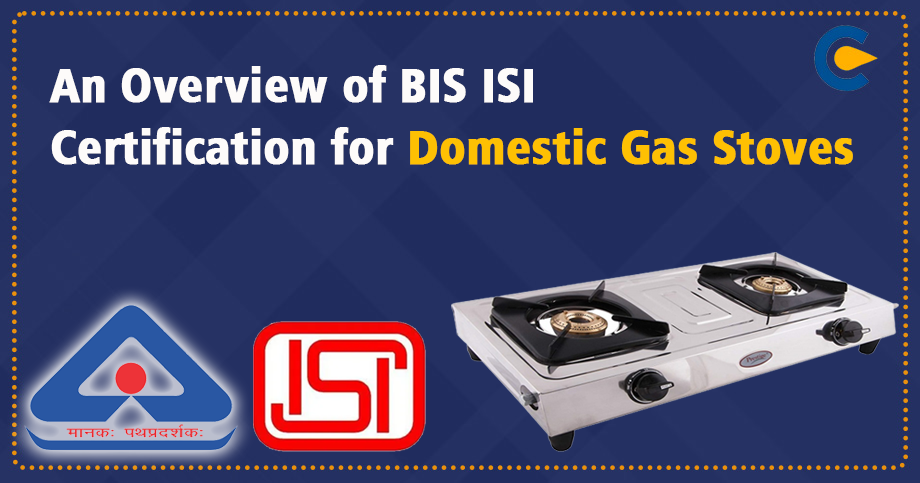In the present scenario, it is not easy to survive in the market without a standard certified & quality product. BIS Certification may also be required to sell products in the Indian market. To obtain BIS Certification, the manufacturer must ensure that their product must follow the specified Indian standard. Let’s take a look at IS 8329:2000 of centrifugally cast iron pipes. This standard classifies the requirements & associated test procedures for cast ductile iron pipes and their joints manufactured in metal (unlined or lined) or sand moulds for the construction of pipelines to convey water, gas or sewage, to be installed either above ground or underground, can be used with or without pressure. This standard also specifies requirements for cast iron pipe materials, tolerances and dimensions, mechanical properties, and standard coatings and linings. This standard doesn’t restrict the use of other kinds of joints or future developments of other joints, as long as overall dimensions are kept consistent for safety & interchangeability. The standard applies to cast iron pipes manufactured with flanged, socketed, or spigot ends for joining with several kinds of gaskets that are not covered by this standard and that are normally delivered internally & externally lined and suitable for fluid temperatures ranging from 0˚C to 50˚C, excluding frost. This blog will discuss the BIS ISI Certification for Centrifugally Cast Iron Pipes in India.
What is BIS ISI Mark?
The Indian Standards Institute, the National Standards body renamed the Bureau of Indian Standards in 1987, is known as ISI. The Bureau of Indian Standards provides producers with the ISI mark as a standard mark for a variety of products. Since 1955, the ISI Mark has been regarded as a symbol of reliability, safety, and purity. The ISI mark has been used as a compliance mark for industrial goods. It confirms that the item complies with Indian Standards (IS) set by the Bureau of Indian Standards (BIS). Obtaining the BIS ISI mark[1] for any product that meets Indian Standards requires an ISI Certification process. Electric irons, room heaters, air conditioners, stoves, freezers, electric cables, and other goods, including UPVC pipes, rubber and leather footwear, composite cement, different acids, etc., need to have the ISI mark.
Types of Manufacturing Units of Centrifugally Cast Iron Pipes for Water, Gas and Sewage
There are two types of manufacturing units covered in this BIS Certification for Centrifugally Cast Iron Pipes are:
- Pipe Casting Units: Manufacturing units that have production/manufacturing capacity to produce said centrifugally cast (spun) iron pipes for water, gas, and sewage, according to IS 8329.
In the case of pipe casting units, the raw material shall be ductile iron or spheroidal graphite iron of good quality.
- Flanging Casting Units: Manufacturing units that do not have production/manufacturing capacity to produce said pipes and procure said pipes from the pipe casting units. They then carry out flanging operations to produce flanged DI pipes.
In the case of flanging casting units, the manufacturers must procure only BIS Standard Marked (ISI-marked) pipes from manufacturing unit(s) holding valid BIS licenses as per IS 8329. These flanging units shall also maintain appropriate records of purchase and consumption of ISI-marked DI Pipes.
Essential Requirements for BIS ISI Certification for Centrifugally Cast Iron Pipes
Following are some essential requirements for getting BIS ISI Certification for Centrifugally Cast Iron Pipes, as listed below:
- The product must meet the BIS Indian Standard Specification criteria.
- Suppose a manufacturer has multiple factory locations, each of which is located at a distinct geographical address. In that case, the business needs to file a separate application form for each product and factory location.
- BIS ISI Certification is only given to the factory (manufacturer of finished products), not to the Distributor or Retailer.
- All production machinery & product testing facilities should be located on the factory premises according to ISS norms and respective SIT.
- The BIS-authorised laboratory should be fully equipped with product testing facilities and qualified quality control personnel to test the product samples under the applicable ISS.
- The technical guidelines are available for each product covered under the Product Certification Scheme as ‘Product Manuals’. Product manuals include a list of test equipment, sampling guidelines, a Scheme of Inspection and Testing (SIT), a description of scope etc. Applicants can refer to this Product/ user Manual for BIS Certification to prepare for the inspection and application form submission so that chances of rejection can be avoided.
- All procedures should be completed in the same factory premises, from receiving raw materials to final packing. If any outsourcing is required, clearance from the BIS may be requested.
Documents Required to Obtain BIS ISI Certification for Centrifugally Cast Iron Pipes
Documents required are very generic and specific for the BIS ISI Certification for Centrifugally Cast Iron Pipes, which includes:
- Factory Registration Documents
- BIS authorised laboratory product samples test report according to Indian Standard of Product;
- Flow chart of a manufacturing process;
- Information of Authorised Signatory and other related essential documents.
- In-house product testing facilities.
Procedure to Obtain BIS ISI Certification for Centrifugally Cast Iron Pipes
Two different processes can obtain the BIS ISI Certification in a normal and simplified process:
Normal Process to Obtain BIS ISI Certification
Step 1: First, the applying party has to prepare for the BIS ISI Certificate requirements, especially setting in-house laboratory & preparing products according to Indian Standards with other required essential documents.
Step 2: Afterward, the BIS officer and inspection team will conduct an inspection process of products along with the factory/industry premises.
Step 3: Once the inspection gets completed, the sealed product samples of the product are further sent for testing at the BIS-approved laboratory.
Step 4: If the product completes all the test parameters, it only gets approved by the BIS, and the authority issues the BIS certificate for Indian Manufacturers within 60 to 65 days of applying.
Simplified Process to Obtain BIS ISI Certification
Step 1: Initially, the applying party submits the report of the samples already tested and approved by BIS as per Indian Standard.
Step 2: Afterward, the applicant must submit a BIS online registration application, BIS Certification Cost, and other required documents.
Step 3: During scrutiny of application & documents, the BIS official will conduct an inspection process of products along with the factory/industry.
Step 4: Once the inspection gets completed, the sealed samples of the goods are further sent for testing at the BIS-approved laboratories.
Step 5: If verified and approved according to the specified standards, the BIS grants the certificate.
Conclusion
At last, the manufacturers or importers of products must take BIS ISI Certification (BIS Marking) if their product is covered in the scope of the BIS Conformity Assessment Scheme. In case of violating the license’s conditions, the Bureau may cancel the license as per Regulation 11 of BIS (Conformity Assessment) Regulations, 2018.
Read our Article:How to Obtain BIS ISI Mark for Household Electrical Goods in India?













